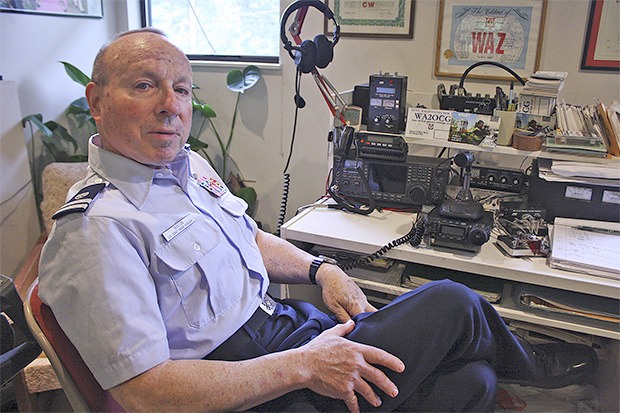Life rarely goes as planned, and even the best training doesn’t prepare us for everything. If there’s one lesson Michael Sealfon learned during his yearlong tour in the Vietnam War, and the 40 years since, it’s that.
Sealfon, who recently self-published a book on his experiences in Vietnam, says the tour shaped his perspective on life and problem solving, and affected him in the subsequent years as a reservist and working in private practice.
A retired colonel and Ph.D who lives in Kent, Sealfon began his career at Penn State’s ROTC department, and commissioned into the Army Medical Service Corps, which encompasses everything not related to immediate patient care. Laboratory work, logistics and supply and aviation are a few examples of the MSC’s talent pool. Originally, the young lieutenant chose biochemistry for a less than altruistic reason.
“Who do you know that likes chemistry? Nobody, right,” Sealfon said. “So if you want to get promoted without much interference, you chose biochemistry.”
But after a week of medical school at Walter Reed Hospital in Virginia, he was sold on lab science and the study of virology. As a laboratory officer, Sealfon analyzed diseases found in soldiers and provided his findings so doctors could effectively treat them.
Sealfon knew that it wasn’t a question of if but when he would be sent to Vietnam, and Uncle Sam called his number in March of 1970 while working as the senior laboratory officer at Fort Knox’s Ireland Army Medical Center. He arrived in the country on June 8, 1970 and began his real training overcoming a number of obstacles there.
“You have a basic skill set,” Sealfon said, holding his hands roughly six inches apart. He then widened the gap to 12 inches. “Here’s your job.”
There were a number of jobs that needed to be done that none of his training had prepared him for, and he had to work out as good a solution as he could with the resources he was given.
His first task involved weeding out soldiers that would adversely affect his organization, including alcoholic and over-managing sergeants and a neurotic, obsessive major who he relied on for additional lab work.
“Bad people,” he lamented, “One or two of them can kill an organization.”
Beyond building an effective and loyal laboratory team, Sealfon also had to improvise solutions for disposing of lab waste and finding weapons.
Seaflon’s lab hired a Vietnamese citizen to help dispose of the trash and laboratory bio waste, but he soon learned that she had also spent time sifting through the trash for anything of use. The practice was gross under normal circumstances and downright lethally dangerous in the context of medical waste.
“She’s gonna bring stuff back to the village, they’re gonna get contaminated, we’re going to have an epidemic on our hands,” he said.
To further complicate matters, the Army hadn’t provided him with any other manner of disposing of his trash, so he created his own with half of a 50-gallon drum, wire mesh and a gallon of isopropyl alcohol.
And he started as he meant to go on, taking advantage of situations as they were presented to him and improvising solutions for other problems.
In another instance, when his compound came under attack one evening, he used a parachute flare to provide light after the power was cut. When he needed to acquire weapons, he negotiated an under-the-table exchange of services with an officer that wanted to be tested for gonorrhea (officers could face disciplinary action for presence of the disease). In exchange to test the officer unofficially, he received a small arsenal of rifles, grenades, flares and a pistol.
The lessons Sealfon learned while in Vietnam – be it team molding, improvisation or negotiation – continued to serve him through his time in the civilian world and the reserves.
“Maybe of all things it was the ROTC training, as an officer,” he said. “They always would stress: make a decision. It may not be right, it may not be wrong, you can’t sit back and think what to do, you have to be decisive, and I guess that stuck with me.”
====
Michael Sealfon’s book, “A Lab Warrior: The experiences of a medical technologist in Vietnam”, is available by request at wa2ocg@aol.com.
Talk to us
Please share your story tips by emailing editor@kentreporter.com.
To share your opinion for publication, submit a letter through our website https://www.kentreporter.com/submit-letter/. Include your name, address and daytime phone number. (We’ll only publish your name and hometown.) Please keep letters to 300 words or less.

